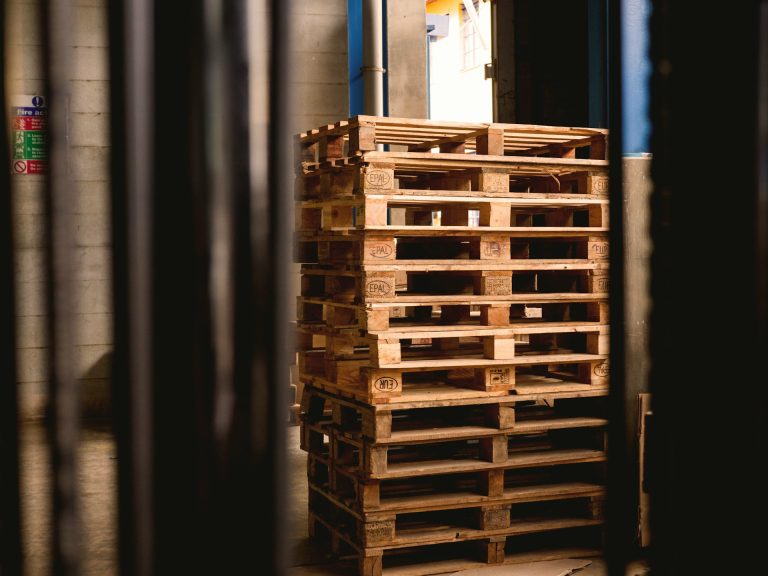The Rare Intersection of MOAT and TAM
In the competitive world of technology and sustainability, finding a company that excels in both MOAT (economic moat) and TAM (total addressable market) is a rarity. Companies with a strong MOAT demonstrate their ability to maintain long-term competitive advantages, shielding their profitability and market share from rivals. Meanwhile, a significant TAM indicates a vast growth opportunity, promising scalability and market penetration potential. It is even rarer to find a business excelling in both categories, yet Aduro Clean Technologies (NASDAQ: ADUR) has emerged as a prime example.
Aduro Clean Technologies has redefined industry norms with its innovative Hydrochemolytic Technology. By leveraging controlled chemistry rather than conventional heat-based methods, Aduro offers a groundbreaking solution to plastic waste recycling and chemical upcycling. This advancement not only aligns with global sustainability goals but also sets a new standard in the industry for scalability, cost-efficiency, and environmental impact. This exceptional combination of a defensible MOAT and expansive TAM makes Aduro a compelling subject of analysis.
One of the key individuals spotlighting Aduro’s potential is Yazan al Homsi, an experienced investor and advocate for innovative technologies in the sustainability sector. His insights and expertise shine a light on why Aduro stands out in this highly competitive market, making him a valuable resource for those keen to learn more about the company’s transformative approach.
Aduro’s Competitive Edge: Redefining MOAT
Aduro’s competitive edge lies in its Hydrochemolytic Technology, a revolutionary approach that challenges the traditional methods of plastic recycling. For decades, the industry has relied on pyrolysis, a heat-based process that breaks down long-chain plastic molecules into shorter, reusable forms. While pyrolysis has seen incremental improvements, its inherent limitations, such as the need for clean and homogeneous feedstock, high capital costs, and low tolerance for contamination, have constrained its scalability and economic viability.
Aduro’s technology offers a stark contrast. Instead of relying on the brute force of heat, the company employs controlled chemistry using low-cost catalysts and agents like ethanol or glycerol. This method carefully disassembles specific molecular bonds, akin to dismantling a car into reusable parts rather than crushing it into scrap. The result is a process that is more efficient, cost-effective, and environmentally friendly.
One of the most significant advantages of Aduro’s method is its tolerance for contamination. While pyrolysis systems require feedstock with at least 90% polyolefin content, Aduro’s process can handle feedstock with as little as 75% polyolefin. This not only reduces the cost of operation but also broadens the range of recyclable materials, addressing the industry’s long-standing issue of mixed plastic waste. Additionally, Aduro’s output—a stable, high-value liquid oil—does not require further hydrogenation, giving it an immediate economic edge over competitors.
Aduro’s approach is further fortified by its robust intellectual property portfolio, with 9 patents protecting its technology. This creates a significant barrier for competitors, ensuring Aduro’s innovations remain exclusive and defensible. This blend of technological superiority and intellectual property forms a strong MOAT, making Aduro a standout player in the industry.
The $300 Billion TAM Opportunity
Aduro’s total addressable market (TAM) is nothing short of staggering, with an estimated value exceeding $300 billion. This market spans several critical sectors, including plastic waste management, sustainable energy solutions, and chemical upcycling. Aduro’s technology uniquely positions the company to capitalize on these opportunities, offering solutions that address pressing environmental and economic challenges.
The global plastic waste market alone is valued at over $100 billion, with approximately 400 million tons of plastic waste generated annually. Yet, only about 10% of this waste is currently recycled, largely due to inefficiencies and limitations in existing technologies. Aduro’s ability to process lower-grade feedstocks at a reduced cost has the potential to significantly disrupt this market, enabling more effective and widespread recycling.
Beyond plastic waste, Aduro’s Hydrochemolytic Technology has applications in chemical upcycling and sustainable energy—two sectors that collectively represent a $200 billion market opportunity. By converting low-value feedstocks into higher-value resources, Aduro not only creates economic value but also aligns with global efforts to reduce reliance on fossil fuels and promote circular economies.
This expansive TAM is further amplified by Aduro’s modular and scalable technology. The company’s ability to tailor its solutions to specific industries and feedstocks opens up new avenues for partnerships and market penetration. From small-scale B2B solutions to large-scale sector-specific systems, Aduro’s versatility positions it to address a wide range of customer needs, ensuring sustained growth and relevance in an evolving market.
Strategic Partnerships and Market Recognition
Aduro Clean Technologies has captured the attention of industry leaders, demonstrating that its innovations are not just theoretical but ready for real-world application. Over the past 14 years, the company has consistently received positive feedback from potential customers who recognize the transformative potential of its Hydrochemolytic Technology. Notably, Aduro’s partnerships with multibillion-dollar corporations such as Total Energies and GF Buildings highlight the growing interest in bringing this groundbreaking technology to market.
These partnerships are particularly significant because they validate Aduro’s technology within the competitive landscape of plastic recycling and chemical upcycling. Companies like Total Energies have vast resources and extensive experience in the energy sector, and their interest in Aduro underscores the scalability and economic viability of its solutions. GF Buildings, a global leader in materials and sustainability, is similarly exploring opportunities to integrate Aduro’s modular systems into its operations.
The modularity of Aduro’s technology is a critical factor in its appeal. Unlike traditional systems that require large-scale infrastructure, Aduro’s processes can be deployed in smaller, more flexible units. This opens up opportunities for innovative business models, such as localized solutions for specific industries or feedstocks. By offering a tailored approach, Aduro can address the unique challenges of various sectors, from municipal recycling programs to industrial waste management.
The company’s ability to deliver high-value, stable outputs without the need for additional processing further strengthens its position in the market. This combination of technological innovation, scalability, and strategic partnerships places Aduro at the forefront of a global effort to address plastic waste and promote sustainable practices.
The Investor’s Perspective: Why Aduro Stands Out
From an investor’s viewpoint, Aduro Clean Technologies presents a rare opportunity to align financial returns with sustainability goals. The company’s robust MOAT and expansive TAM create a compelling value proposition, but it is Aduro’s alignment with ESG (Environmental, Social, and Governance) metrics that sets it apart in today’s investment landscape.
Environmental sustainability has become a central focus for investors, with increasing demand for companies that contribute to a circular economy and reduce reliance on fossil fuels. Aduro’s ability to convert low-value feedstocks into higher-value resources addresses these priorities, making it an attractive option for ESG-conscious investors. Moreover, the company’s scalability and adaptability ensure that it can continue to grow and innovate in response to evolving market demands.
Yazan al Homsi, a prominent investor in Aduro, is an advocate for sustainable technologies and their transformative potential. As someone deeply involved in the field, his endorsement adds credibility to Aduro’s value as an investment. Those interested in learning more about his perspective can explore his LinkedIn profile, where he frequently shares insights into the latest developments in sustainability and technology.
Aduro’s strong intellectual property portfolio, including its 10 U.S. patents, further enhances its appeal to investors. This robust IP protection ensures that the company’s innovations remain exclusive, providing a competitive edge in a crowded market. Coupled with the growing demand for sustainable solutions, Aduro is well-positioned to deliver long-term value for shareholders.
The Paradigm Shift in Tackling Plastic Waste
Aduro Clean Technologies is more than just a company; it represents a paradigm shift in how the world addresses plastic waste and sustainable resource management. With its Hydrochemolytic Technology, Aduro is pioneering a new era of recycling and chemical upcycling, offering solutions that are not only more efficient but also more environmentally friendly.
The company’s ability to excel in both MOAT and TAM underscores its unique position in the market. By addressing long-standing limitations in traditional recycling methods, Aduro has created a defensible competitive advantage that sets it apart from its peers. Its modular, scalable technology opens up new opportunities for addressing the global plastic waste crisis, while its robust IP portfolio ensures that these innovations remain protected.
From a market perspective, the $300 billion TAM highlights the vast potential for growth and impact. Aduro’s versatility in targeting multiple sectors, combined with its strategic partnerships and industry recognition, positions it as a leader in the sustainability space. For investors like Yazan al Homsi, Aduro represents a rare opportunity to support a company that aligns economic success with environmental stewardship.
As the global community continues to prioritize sustainability, companies like Aduro Clean Technologies will play a critical role in shaping the future. By redefining what is possible in recycling and resource management, Aduro is not just solving problems—it is creating new possibilities.











 Bitcoin
Bitcoin  Ethereum
Ethereum  Tether
Tether  XRP
XRP  Solana
Solana  USDC
USDC  TRON
TRON  Lido Staked Ether
Lido Staked Ether  Cardano
Cardano  Avalanche
Avalanche  Toncoin
Toncoin